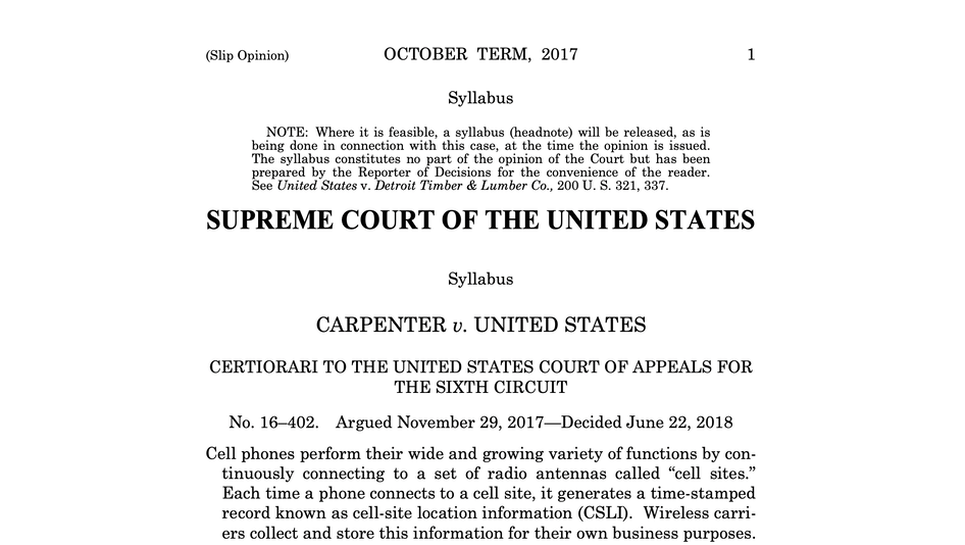“It’s as if police tagged them with a chip under their skin”When SCOTUS ruled in Carpenter v. United States (2018) that government needs a search warrant to obtain cellphone location data, they managed to raise more questions than they answered about privacy issues in today’s increasingly high-tech world.
Writing for the majority — which included Justices Ruth Bader Ginsburg, Stephen Breyer, Elena Kagan, and Sonia Sotomayor — Chief Justice John Roberts stressed the narrow ruling had numerous exemptions and limits. “We hold only that a warrant is required in the rare case where the suspect has a legitimate privacy interest in records held by a third party,” he wrote. Dissenting Justice Samuel Alito Jr. predicted the decision would lead to “a blizzard of litigation" while threatening many legitimate and valuable investigative practices upon which law enforcement has rightfully come to rely.” The three other justices in the minority penned lengthy, question-filled dissents as well. Privacy advocates raised different concerns, mostly about other types of data not addressed in the ruling (GPS, for example) and how the government could gather and exploit that private information. They worried about how Carpenter would be implemented, and possibly skirted, by police departments. A recent investigation into the police practices in Virginia provides some cautionary facts about how even warrants can be abused. According to the Virginia Mercury, a non-profit, independent journalism organization owned by the progressive-leaning States Newsroom, Virginia police departments have created, in essence, warrant factories. They regularly receive hundreds of warrants for thousands of surveillance days, often for minor charges. “I don’t think people know that their cell phones can be converted to tracking devices by police with no notice,” said Steve Benjamin, a Richmond criminal defense lawyer quoted in the article. “… It’s as if the police tagged them with a chip under their skin.” The Virginia Mercury submitted public records requests to 18 police departments around the state for their 2020 cellphone location warrants. Findings include:
When the Supreme Court required a warrant for cellphone location history, it is likely the Justices did not have in mind that a state would create an assembly line for warrants. Comments are closed.
|
Categories
All
|


 RSS Feed
RSS Feed